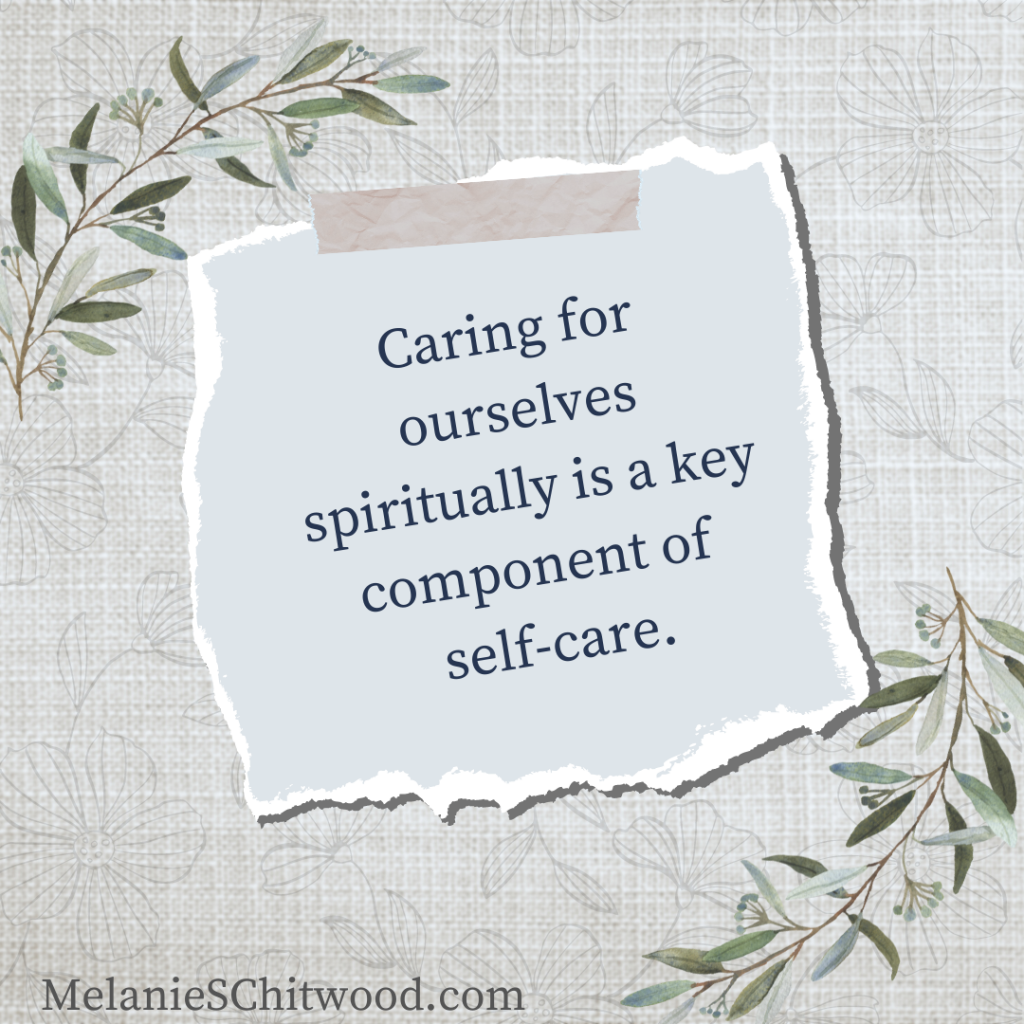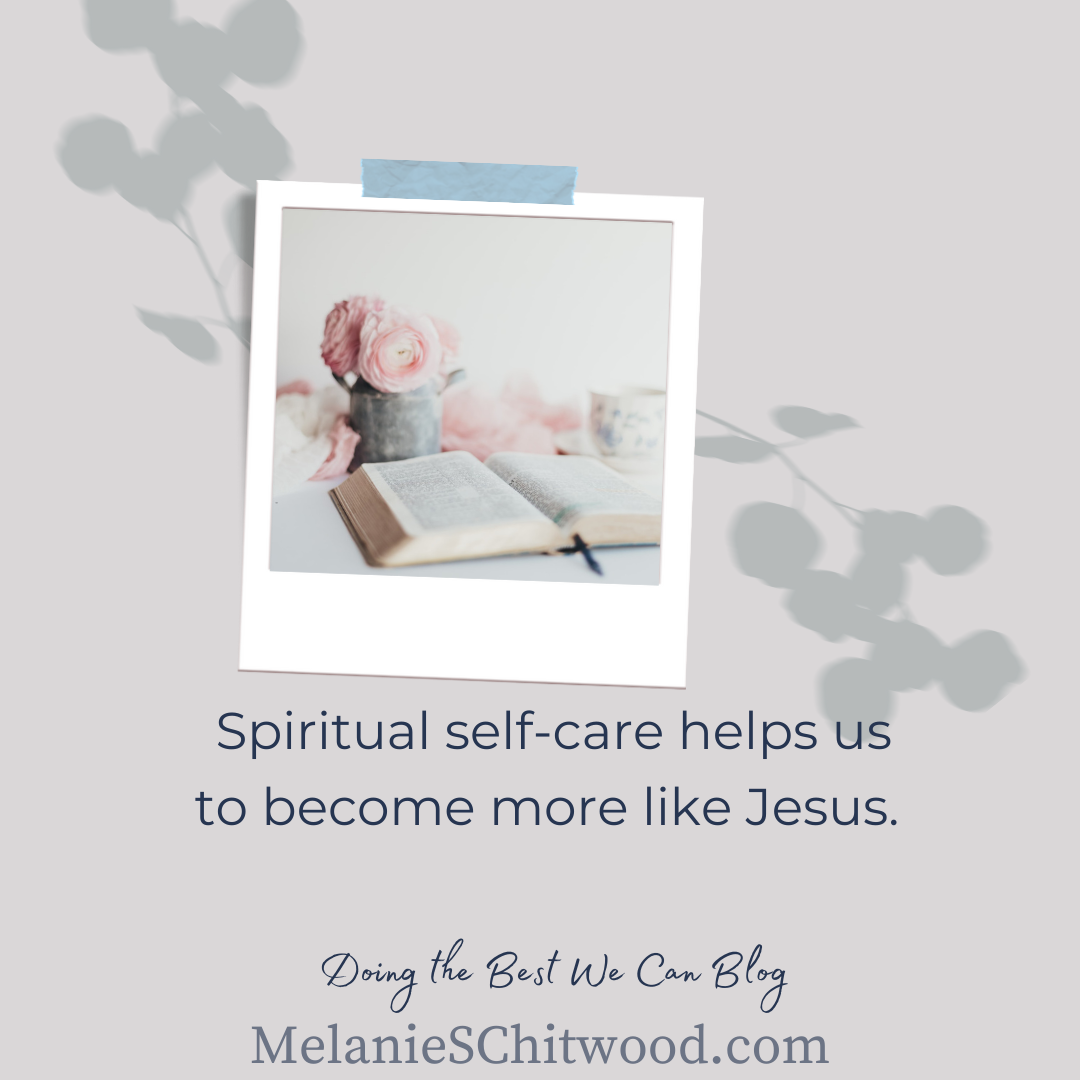How to Care for Ourselves Spiritually
Taking Good Care: Part 2
Self-care means taking care of our whole being – physically, mentally, emotionally, socially, and spiritually.

In my last blog I suggested a bunch of ideas to get you thinking about what kind of self-care you need. I hope you are using the four gift certificates I provided to give yourself permission to be still, to refresh, and/or indulge.
On my Facebook and Instagram last week and this week I’m posting a few fun things I’ve been doing for self-care and one includes a goat!
Today let’s look at what it means to take care of ourselves spiritually.
Time with God’s Word
Taking care of ourselves spiritually begins with knowing God and being known by God, and that starts with reading and engaging with God’s Word.
We read in John 1:1, “In the beginning was the Word, and the Word was with God, and the Word was God.”
We cannot know God without knowing His Word, for they are one and the same.
For years I’ve been having a quiet time, a time when I sit with my Bible and a journal.
Being still with God’s Word has been a purposeful choice, and it’s a choice I continue to make. It’s easier now to find time to be still and quiet as I’m an empty-nester.
But even when life was crazy-busy, rich and full, I got up early to have a quiet time before anyone else in the family was awake. I decided I wanted to know God, to follow Him, to become like Him. And that was only going to happen through knowing His Word.
Yes, Bible studies and small groups are important. Church-going is vital. And listening to sermons and/or podcasts can be lifechanging.
But crucial to your spiritual well-being is one on one time with just you and God and His Word. Whether reading or listening to God’s Word, that’s how you really get to know God.
Think about your most important relationships. Isn’t one on one time what you crave with them? To really know that person and for them to know you.
Isaiah 30:18 reminds us that God wants to know us and to wrap us in His love.
Yet the Lord longs to be gracious to you;
therefore he will rise up to show you compassion.
Reading and Engaging in God’s Word
We can read God’s Word for two different experiences:
1)for information
2)for transformation
Reading God’s Word for Information
When we read Scripture for information, we’re engaging mostly our minds.
I like to pick a book of the Bible, and read through it sequentially, looking at a few verses per day.
After reading, I ask these two questions:
1. What do I learn about God, Jesus, and/or the Holy Spirit?
2. How can I respond to this?
Asking a set of questions is an easy way to begin to understand God’s Word. It’s okay if you don’t understand everything you read. But search for what you do understand.
Here’s another set of questions you can use repeatedly as a guide from my friend, speaker and author, Amy Carroll.
1. What does it say? (literal)
2. What does it mean? (digging for meaning)
3. How can I apply this to my life? (living it out)
I write my responses in my journal.
And I do this over and over.
I’m a big journaler. I usually just write in a spiral notebook, but sometimes I treat myself to a pretty journal. And sometimes my responses to the above questions go all over the place, but other times I give short answers.
Writing is how I communicate best with God. But you don’t have to journal! You do you!
We’ll talk next time about reading God’s Word for transformation.
For now, tell me about your quiet time.
What practices help you grow closer to the Lord?
~Melanie






